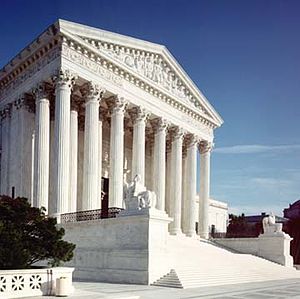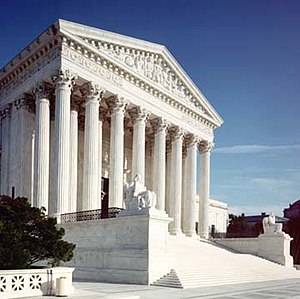
N.Y. Court Finds Lack of Jurisdiction in Fraudulent Transfer Suit
In Mark S. Kirschner v. John D. Goglia, et al., Case No. 11 Civ. 08250-JSR (S.D.N.Y. May 9, 2012), the United States District Court for the Southern District of New York granted a motion to withdraw the reference by defendants in an adversary proceeding commenced by the trustee in the Refco bankruptcy case, asserting fraudulent conveyance and unjust enrichment claims.
The District Court initially withdrew the reference to determine (a) whether the United States Supreme Court’s decision in Stern v. Marshall, 131 S. Ct. 2594 (2011), which held that only Article III courts can finally resolve state law tortious interference claims, provided that a bankruptcy court could not resolve the trustee’s fraudulent conveyance claims; and (b) even if the bankruptcy court could not resolve those claims, whether the bankruptcy court still could recommend findings of fact and conclusions of law for the District Court to consider.
After surveying the case law surrounding the Supreme Court’s Stern case, the District Court held that (a) the bankruptcy court lacked constitutional authority to enter a final judgment on the trustee’s claims; and (b) the bankruptcy court did have authority to conduct proceedings and issue a report and recommendation to the District Court, provided it was subject to de novo review.
Background
On October 17, 2005, Refco and its affiliates filed for chapter 11 bankruptcy relief in the Southern District of New York. Before it entered bankruptcy, Refco was one of the largest brokerage firms in the United States. On October 5, 2005, the Company disclosed that certain insiders were using money in customer brokerage accounts to fund the firm’s operating expenses and hide the Company’s insolvency, all the while enriching themselves.
A little over a year after the filing, the bankruptcy court confirmed a liquidating plan that created the Refco litigation trust for the purpose of prosecuting Refco estate claims against third parties. Traditional types of claims asserted by an estate are preferential transfer and fraudulent conveyance claims.
Under section 544(b)(1) of the Code, a trustee may avoid “any transfer of an interest of the debtor in property or any obligation incurred by the debtor that is voidable under applicable law by a creditor holding an unsecured claim.” This provision allows a trustee to bring fraudulent transfer claims under state law. That is precisely what the trustee did in the Kirschner case, where the trustee asserted fraudulent conveyance claims under unjust enrichment under New York common law. The gist of the claims is that the defendants, former executive of Refco, were co-conspirators in the Refco fraud, receiving $80 million from a Refco-affiliate.
Analysis
District Courts have original jurisdiction over bankruptcy cases and all civil proceedings arising under the Bankruptcy Code or arising in or related to cases under the Bankruptcy Code. See 28 U.S.C. s. 1334. Pursuant to 28 U.S.C. s. 157(a), a federal district court may refer actions within bankruptcy jurisdiction to the bankruptcy court of that district.
Section 157 of title 28 delineates two types of proceedings: (a) a “core” proceeding, where the bankruptcy court may enter a final judgment or order, and (b) a “non-core” proceeding, where the bankruptcy court may hear but may only recommend findings of fact and conclusions of law to the district court for de novo review. See In re Orion Pictures Corp., 4 F.3d 1095, 100-01 (2d. Cir. 1993).
In Stern v. Marshall, supra, the Supreme Court held that a state law tortious interference counterclaim could be finally adjudicated by an Article III court and not by an Article I court (i.e., a bankruptcy court), even thought section 157 seemingly converted the state law counterclaim to a “core” proceeding.
The issue before the District Court was whether the Stern opinion made it unconstitutional to resolve a state law fraudulent transfer claim. The District Court reasoned that at the heart of the Stern opinion was th distinction between “private rights” claims, referred to as common law claims that only Article III courts could adjudicate, and “public rights” claims that assert claims, which are “derived from” or “closely intertwined with” a federal regulatory scheme, like the Bankruptcy Code, and which an Article I court could adjudicate.
In arriving at a determination, the Court considered the opinion in Granfinanciera, S.A. v. Nordberg, 492 U.S. 33 (1989), where the Supreme Court held that the Seventh Amendment right to a jury trial applied to fraudulent conveyance actions. In Stern, the Supreme Court noted that it previously rejected, in the Granfinanciera case, the notion that fraudulent transfer claims involved “public rights.”
While giving deference to the bankruptcy court’s holding, the District Court concludes that “simple logic dictates unequivocally that fraudulent conveyance claims like those brought here are ‘private rights’ claims, that under Stern and the Constitution, must be finally decided by an Article III Court.”
Bankruptcy Court Jurisdiction Still Alive
While the District Court held that the bankruptcy court did not have jurisdiction to enter a final judgment in the fraudulent conveyance suit pursuant to the Stern opinion, it found that the bankruptcy court had the statutory authority to issue proposed findings of fact and conclusions of law on those claims referenced as “core” claims under 28 U.S.C. s. 157 (i.e., the fraudulent conveyance claims).
In a nutshell, the District Court found that a bankruptcy court does not have express authority to issue a final judgment in all “core” claims identified under the section 157 of title 28. Instead, according to the New York District Court based on the Stern opinion, bankruptcy courts only have authority to issue recommendations to the corresponding district courts in “core” claims that do not involve “public rights.”
Nonetheless, two important factors make the District Court’s opinion moot, for practical purposes. First, the District Court of the Southern District of New York adopted local rules in February 2012 that provide that “[i]f a bankruptcy court or district judge determines that entry of a final order or judgment by a bankruptcy judge would not be consistent with Article of the United States Constitution in a particular proceeding referred under [Local Rules] and determined to be a core matter, the bankruptcy judge shall, unless ordered by the district judge, hear the proceeding and submit proposed findings of fact and conclusions of law to the district court.”
Second, and more importantly, the District Court held that, having found that the bankruptcy court had jurisdiction to, at least, issue proposed findings of fact and conclusions of law for the District Court to consider, there was no reason to withdraw the reference in the adversary as requested by the defendants.
Conclusion
In making its final ruling, the District Court concluded that the fraudulent conveyance claims did constitute “core” matters (i.e., traditionally bankruptcy court matters) and the bankruptcy court was intimately familiar with the facts, having spent 3 years working on the adversary proceeding. According to the District Court, “[w]hile [the bankruptcy court] will now have to issue a report and recommendation, rather than a final judgment, and the district court will have to review the matter de novo, experience strongly suggests that having the benefit of the report and recommendation will save the district court and the parties an immense amount of time.”
Furthermore, the District Court suggested that, if concerned about the right to jury trial (which is generally enforced by Article III courts), the defendant could still preserve its rights to a jury trial by motioning the district court to withdraw the reference right before trial so that the bankruptcy court could, at least, resolve most pre-trial matters. But, as in the case sub judice, the district court could easily decide not to withdraw the reference at an early stage in the trial, while preserving the right for the district court to adjudicate the ultimate merits of the claims later in the case.






